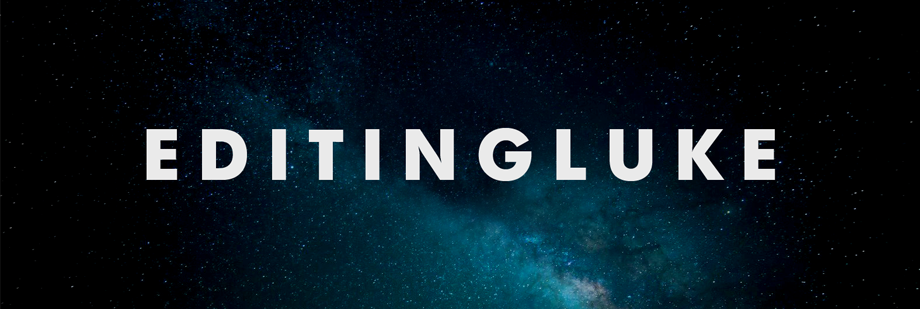I feel like I've ranted, raved, trashed, and glamorized my own film school experience over the last several years, but that's not to say that I don't still have questions regarding the field. Now working two media jobs (largely as an editor) I feel very grateful for the experiences I've had and remember exactly what it was like trying to figure out how I was going to turn a passion into a paycheck.
Personal drive seems fundamental to making it in any competitive field, but self-assuredness is something that you best find quickly if you expect to weather the rejection from pursuing a job in creativity. Looking up information I stumbled onto studentfilms.com Film School Advice forum and had fun just exploring all of the discussions. It brought me back to high school and the anxiety I faced as I tried to decide between different film schools - ultimately I settled for the cheapest one.
From screenwriting to directing, from grant applications to film school applications, there are so many facets to film and video that make it possible to really shape the path you take. In my own experience, I returned to a smaller city after film school and actually established/developed my position with both companies with the promise of bringing a new approach to their creative strategies. While I still strive to do narrative/independent production, the work I've been doing since university has been highly self-motivated and full of variety.
I really just wanted to share this Film School Advice forum to get your brain working. Whether you're an aspiring filmmaker, recently graduated, or just interested in film and video, there's a wealth of information to be borrowed (and to make your experience less stressful).
Perhaps the greatest bit of personal advice that I can give is for you to find the answers that work for you. There are thousands of ways to get to where you want to go - something I didn't quite realize until I got there. For more general banter check out my post on Advice for Aspiring Filmmakers.
Jul 19, 2010
Jul 17, 2010
We Humans Are Capable of Greatness
This short video cut together using a piece of narration from astronomer Carl Sagan, titled We Humans Are Capable of Greatness, is a profound piece of perspective. I love being reminded of how seemingly insignificant and overwhelmingly unique we humans really are. Trapped on our own little world, in our small societies and neighbourhoods, it's too easy to forget that there's a vastness to our own existence that we can barely comprehend without being philosophical. This is worth a click.
Jul 15, 2010
Directing 101 by Ernest Pintoff
 This was the first book I ever read that focused entirely on filmmaking as a craft; as a series of tasks and skills that needed to be rehearsed and focused on. I think I must have been 14 or 15 when I received Directing 101 as a gift. Up until then (and in a more advanced way now) much of my filmmaking was about trial and error and having this book proved to be a great introduction to how ideas and creating could really be turned into a strategic process.
This was the first book I ever read that focused entirely on filmmaking as a craft; as a series of tasks and skills that needed to be rehearsed and focused on. I think I must have been 14 or 15 when I received Directing 101 as a gift. Up until then (and in a more advanced way now) much of my filmmaking was about trial and error and having this book proved to be a great introduction to how ideas and creating could really be turned into a strategic process. Directing 101 is written by Ernest Pintoff who taught at USC and UCLA and the real strength of the book is in its general and broad descriptions of all the things that a director needs to consider.
From writing your screenplay to blocking a scene to speaking with your actors and the various roles of a film crew, as a teenager this was incredibly valuable as I hadn't even considered the value or distinction between the roles of a producer or cinematographer or director of photography.
When you're just starting out you're inclined to just point and shoot and hope that everything comes together in post. It was books like this that made me think more critically about what I was doing. There came a point for me where I knew that this was something I wanted to pursue as a career, and suddenly there was just so much to see and do. Despite how amateur my earliest projects were, I still look back and think about how ambitious I was trying to be.
As a precursor to going to film school, books like this were a huge motivation and it's why I wanted to write about it. Inside you won't find many things that you haven't heard or thought of before, but they will be explained in a more cohesive way that can really help those who are just getting into film and video. It's a good reference and step by step walk through of what it actually means to be a director. If you want to make more than just a point and shoot video, pick up one of the hundreds of books just like this to put that extra bit of effort into your creative process and to further challenge yourself with relevant lessons.
I have my cousin Leslie to thank for this book. It's now one of many that I keep with my film texts as a reminder of my earliest attempts to make better and better movies. There's never a shortage of new things to learn.
Catalogue:
Books
,
Film School Lessons
,
Filmmaker Life
,
Is Film School Worth It?
,
Reviews
,
Student Life
Subscribe to:
Posts
(
Atom
)



